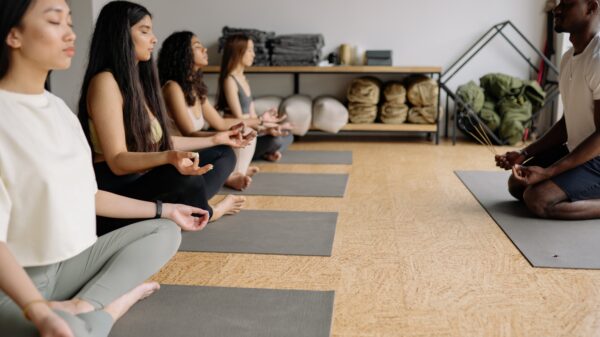
Are you tired of feeling like life is passing you by? Yearning for more happiness and fulfillment? Look no further, because we have the solution: routine. Yes, routine – that word often associated with boredom and monotony – has the power to transform your life into one filled with joy, purpose, and contentment. In this blog post, we will delve deep into how developing good habits through a well-crafted routine can unlock the key to a happier existence. Get ready to revolutionize your lifestyle as we unveil the incredible power of routine!
What is a Routine and what are Good Habits?
Routine can be defined as a set of behaviors or activities that are regularly done in a particular order. Routines can be helpful in many areas of life, including developing good habits, reducing stress, and increasing productivity.
When it comes to developing good habits, routines can be particularly helpful. Having a set routine can make it easier to stick to healthy habits like exercise and eating well. It can also help to develop positive behavior patterns like waking up early or spending time each day on personal growth activities.
Routines can also reduce stress by providing structure and predictability in our lives. When we know what to expect each day, we can feel more relaxed and less overwhelmed. This can lead to improved mental and emotional health.
Routines can increase productivity by helping us use our time more efficiently. When we have a plan for our day, we are less likely to waste time on activities that don’t contribute to our goals. We can also use routines to batch similar tasks together so that we can work more efficiently.
Routine is a powerful tool that can lead to a happier and more fulfilling life. By developing good habits and reducing stress, we can improve our physical and mental health. And by increasing productivity, we can free up more time for the things we enjoy most.
Why Routines Are Important to initiate Good Habits
It’s no secret that leading a happy and fulfilling life requires effort and intention. But did you know that one of the best ways to set yourself up for success is to develop routines? That’s right – routines can be powerful tools to help you achieve your goals, both big and small.
Think about it – when you have a routine, you don’t have to waste time making decisions about what to do next. You already know what comes next, so you can focus your energy on actually doing it. Routines can also help you stick to good habits, like eating healthy or exercising regularly. And when you have good habits, you’re more likely to be happy and fulfilled.
Of course, routines won’t work miracles – they won’t make all your problems disappear. But they can help you create a foundation for a happier life. So if you’re looking for ways to boost your happiness, developing some good routines is a great place to start.
How to Develop Good Habits
It’s no secret that developing good habits can lead to a happier and more fulfilling life. After all, when we have positive routines in place, we tend to feel more content and accomplished. Not to mention, good habits help us take better care of ourselves both physically and mentally. So, if you’re looking to develop some good habits of your own, here are a few tips to get you started:
1. Start small. When it comes to developing new habits, it’s important to start small and gradually build up. Trying to tackle too much at once is likely to overwhelm you and set you up for failure. So, pick one or two specific things you want to work on and focus on those.
2. Set realistic goals. Along the same lines as starting small, be sure to set realistic goals for yourself. If your goal is too lofty or unrealistic, it’ll be that much harder to stick with it long-term. But if your goal is something achievable that you can realistically work towards, you’re much more likely to succeed.
3. Make a plan. Once you’ve decided what habit(s) you want to work on and have set some realistic goals, it’s time to make a plan of action. This will help keep you focused and on track as you work towards developing your new habit(s). Write down what steps you need to take in order to reach your goal and then break those down into smaller daily or weekly tasks.
Benefits of Routine and Good Habits
Routine and good habits have been shown to have a number of benefits for both mental and physical health. Developing good habits can help to reduce stress, improve sleep, boost productivity, and increase overall happiness.
One of the main benefits of routine is that it can help to reduce stress. When we know what to expect each day, we are less likely to feel overwhelmed or anxious. Having a set routine can also help us to stick to healthy habits, like exercise or eating a nutritious diet.
Good sleep habits are another important part of maintaining our health and happiness. Getting enough quality sleep helps our bodies to recover from the day’s activities and prepare for the next day. It also gives our brain a chance to rest and process information.

Boosting productivity is another benefit of developing good habits. When we have a set routine, we are more likely to get things done and meet our goals. This is because we are less likely to waste time procrastinating or making excuses.
Increasing overall happiness is another great reason to develop good habits. When we feel good about ourselves and our lives, we are more likely to be happy overall. Good habits can help us to feel accomplished and fulfilled, which leads to increased happiness.
Tips for Making Routines Stick
1. Start small – it’s easier to stick to a routine if you start with something manageable. For example, if you’re trying to develop the habit of going to the gym three times a week, start by going once a week and gradually increase the frequency.
2. Make it enjoyable – find ways to make your routine fun and rewarding so that you’ll look forward to doing it. For instance, if you’re trying to eat healthier, cook meals that you love and are excited to eat.
3. Be flexible – life happens, and sometimes our best-laid plans go awry. Don’t be too hard on yourself if you miss a day or two here and there – just pick up where you left off and keep going.
4. Stay motivated – remind yourself regularly of why you’re doing this routine and how it’s benefiting your life. This will help you push through on days when you don’t feel like it.
5. Get support – tell your friends and family about your goals and ask them for help in sticking to your routine. Having people who are rooting for you makes all the difference!
Common Challenges Faced When Establishing a Routine
One of the most common challenges people face when trying to establish a routine is finding the time to do it. We all have the same 24 hours in a day, but it can be hard to find even 30 minutes to dedicate to something that feels like a chore. It’s important to remember that establishing a routine doesn’t have to be an all-or-nothing proposition. Even small changes can make a big difference in your overall happiness and well-being.
Another common challenge is staying motivated once you’ve started a routine. It’s easy to get off track when life gets busy or stressful. Again, it’s important to remember that even small changes can make a big difference. If you miss a day or two, don’t give up! Just get back on track as soon as you can.
One of the biggest challenges people face when trying to establish a routine is making it stick. It takes time and effort to develop new habits, but it’s worth it! The key is to be patient and persistent. Start with small goals and build from there. And don’t be afraid to ask for help from friends or family members if you need it.
Alternatives to Traditional Routines
If you find yourself struggling to stick to a traditional routine, there are plenty of alternatives that can help you develop good habits and lead a happier life. Here are a few ideas to get you started:
1. Try a less rigid approach: Instead of following the same strict schedule every day, allow yourself some flexibility. If you know you have a busy week ahead, plan your days accordingly and give yourself some wiggle room for unexpected events.
2. Create a personalized routine: Not all routines have to look the same. Find what works for you and build your own unique routine that fits your lifestyle and personality.
3. Make it fun: Add some excitement to your routine by incorporating activities that you enjoy. This will make it more likely that you’ll stick with it in the long run.
4. Be realistic: Don’t try to accomplish too much at once or set unrealistic goals. Start small and gradually add new elements to your routine as you go.
5. Get creative: There’s no need to be boring when it comes to developing good habits! Get creative with how you structure your days and find ways to make things more fun and interesting.
Conclusion
In conclusion, the power of routine should never be underestimated. Not only does having a regular schedule help to keep you organized and productive, but it can also lead to greater happiness and wellbeing in your life. Establishing good habits and routines is important for developing self-discipline, improving mental focus, reducing stress levels, and helping you reach personal goals. With this newfound knowledge that creating a positive routine can have an immense effect on our lives, why not take the time out of your day to start building healthier habits?







